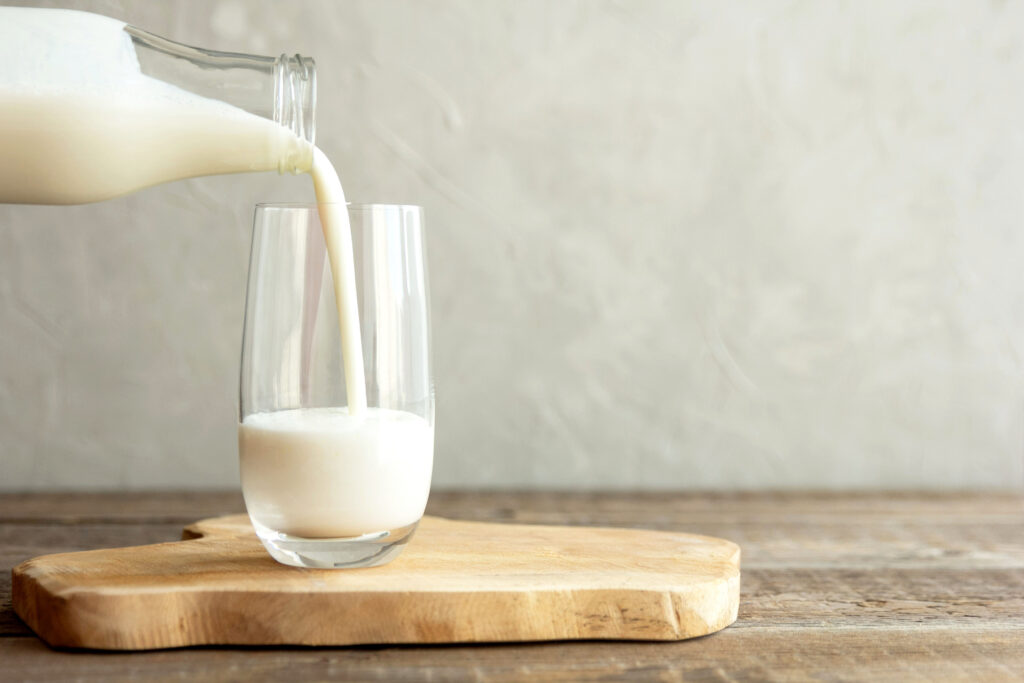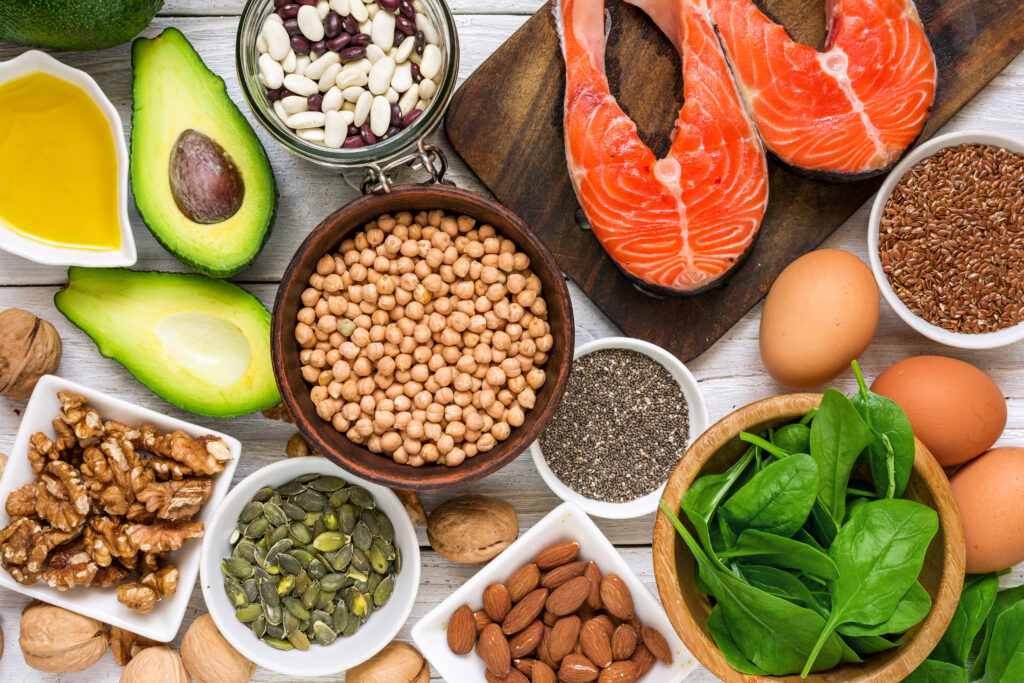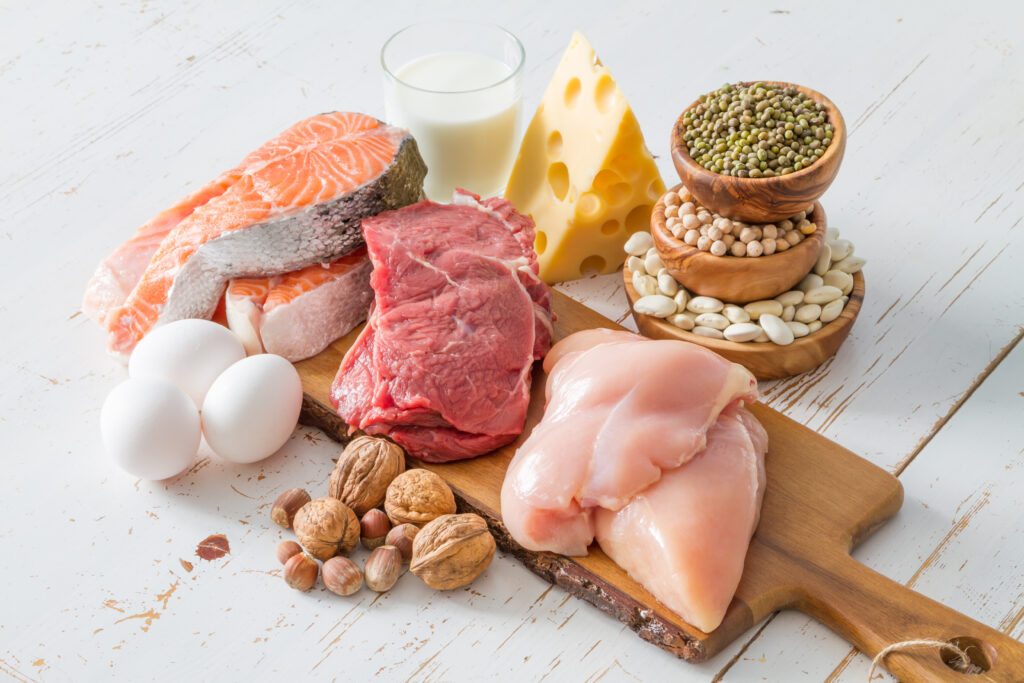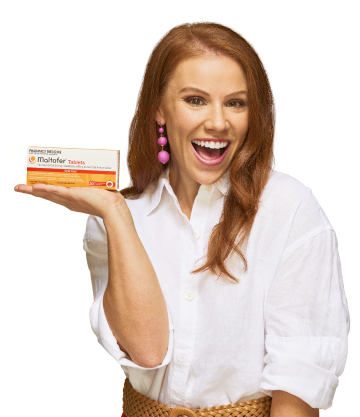It’s no secret that childbirth is one of the most physically and emotionally demanding of human experiences. It’s called labour for a reason.
And with the demands of a newborn hot on the heels of this exhausting enterprise, it’s no wonder most new mums feel depleted.
That’s why focusing on your postpartum nutrition is so important. You need to bolster your energy and mineral reserves to help care for your newborn and yourself.
We want to help you make sure you replenish essential nutrients to maintain your energy, aid with healing and support breastfeeding.
Here, we’ll look at five key nutrients — iron, calcium, omega-3 fatty acids, vitamin D and protein — that are vital in supporting recovery after childbirth.
Iron – Replenishing Iron Stores Post-Childbirth

Iron is a vital micronutrient with many roles in the human body. One of its main roles is helping carry oxygen around the body.
The nutritional demands of pregnancy may deplete your iron stores. For some women, too, blood loss during or after childbirth could leave them with low iron levels. Your GP will likely want to check your iron levels after you give birth, to see if they’re too low. If so, they will provide you with advice on how to rebuild your iron stores.
The recommended daily iron intake of iron in women who are breastfeeding is 9 mg. For women who are not breastfeeding, it’s 18 mg. You may be able to achieve this recommended intake of iron by diet alone.
Iron-rich food includes item such as:
- red meat and other meats like chicken and fish
- beans, split peas
- nuts
- dried fruit
- wholegrains (like bread and cereals)
- leafy green vegetables
If you think — or tests confirm — that your iron levels are low, talk to your doctor. If diet changes alone won’t provide enough iron, they may recommend an iron supplement. They’re in the best position to advise which type of iron supplement and dosage is most appropriate for you.
Calcium – Supporting Bone Health and Milk Production

Calcium is another key mineral, best known for its role in making bones healthy and strong. It also helps your nerves, muscles and heart work well. If you’re breastfeeding, calcium from your body goes into your breastmilk, so there’s calcium to support your baby’s bone, muscle, nerve and heart health as well.
In fact, if you’re breastfeeding, you may have a temporary decrease in your bone mass, as your body takes calcium from your bones to help make breastmilk. That’s why you need plenty of calcium in your diet, especially when breastfeeding.
The recommended daily intake for calcium is 1000 mg(AJGP). You can get this amount of calcium with 2 to 3 serves of calcium-rich foods, like:
- Milk
- Cheese
- Yoghurt
- Calcium-fortified soy milk
Many Australians don’t consume enough calcium, and breastfeeding women are particularly vulnerable to a temporary calcium deficiency. If you think you’re not getting enough calcium, talk with your doctor or pharmacist about supplementation options.
Omega-3 Fatty Acids – Promoting Brain Health and Reducing Inflammation
Omega-3 fatty acids have loads of potential health benefits, including supporting heart health, immune system function and brain health.
Our bodies don’t make Omega-3, so we need to get it from food. If you’re breastfeeding, the recommended daily intake of Omega-3 fatty acids is 200 to 300 mg. One to two serves of fish each week is around this amount of Omega-3.
Good sources of Omega-3 fatty acids include:
- Seafood sources like salmon, mackerel, tuna, trevally and sardines
- Plant-based sources such as canola and soy oils, canola-based margarine
- Linseeds and Walnuts
If you struggle with eating seafood or nuts, it might be worth chatting to your doctor or pharmacist about taking a supplement.
Vitamin D – Boosting Bone Strength, Immune Function and Mood

Vitamin D is another micronutrient that helps keep your bones strong. It helps you and your baby absorb the calcium from your diets. Recent studies show that vitamin D may also play a role in supporting your immune system and supporting mental health (Dieticians VitD ).
Vitamin D is unique among vitamins. That’s because one of the best sources of vitamin D is from sunlight on the skin.
While sunlight on skin is the main source of vitamin D, you can also get small amounts from:
- oily fish
- butter
- fish liver oils
- egg yolks
- foods fortified with vitamin D (such as margarine, milk, and yoghurts)
Your baby will likely need more vitamin D than your body can supply in the breast milk. Talk to your doctor about a suitable vitamin D supplement for your needs.
Protein – Aiding Tissue Repair and Muscle Recovery

Proteins are vital in any healthy diet since they are made up of amino acids your body uses to:
- build and repair muscles
- build and repair bone
- make hormones
- make enzymes
- supply energy for your cells
After the physical battle of birth, your body needs to heal. Protein is key to supporting this. If you’re breastfeeding, you’ll need more protein than usual.
For breastfeeding women, the recommended daily intake is 67 g. For women who are not breastfeeding, it’s 46 g.
It’s pretty easy for most people to achieve this amount of protein by eating:
- red meat
- fish
- chicken
- eggs
- cheese or yoghurt
- nuts and seeds
- lentils, baked beans and split peas
When to Consider Supplements for Postpartum Recovery
After you give birth, your body needs more and better nutrition. This is especially true if you are also breastfeeding, as you will need more calories and nutrients to care for yourself and your baby.
Most of the time, you can get enough nutrition by eating a healthy, balanced diet with:
- fruit and vegetables
- protein
- grains
- limited fat
There will, however, be women who will need to supplement their diets with added micronutrients.
Your doctor is best placed to advise you about suitable supplement options for your situation.
In some cases, your doctor will test the nutrient levels in your blood to see if they are in the healthy range. For example, GPs often test iron levels after childbirth. If iron levels are depleted, they may recommend that new mums use a suitable iron supplement.
If you have been diagnosed with iron deficiency and find that you do not tolerate ferrous iron supplements, Maltofer Tablets or Maltofer Syrup can help improve iron levels.




